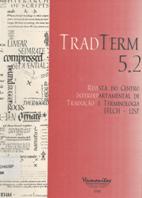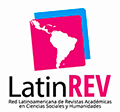Translation exercises in the classroom setting
DOI:
https://doi.org/10.11606/issn.2317-9511.tradterm.1998.49527Keywords:
Translator education, social constructivism, collaborative learning.Abstract
Translation studies, despite some fifty years of educational practice and research on translation, has yet to come up with systematic, empirically supported methods for the education of professional translators. This article briefly outlines a "constructivist" approach to translator education, ilustrated by its application to an experimental translation practice class at the University of Mainz, Germany. The social constructivist approach taken here, based partly on the work of Lev Vygotsky, sees learning essentially as an active process of meaning-making, carried out through collaboration with other members of a community. The implications of this alternative epistemological perspective include the need for a change in the role of teachers: away from the authoritarian transfer of knowledge toward the supportive assistance of a facilitator for students' personal knowledge construction through collaborative, situated interaction. Links are drawn to the deconstructionist approach propagated by Rosemary Arrojo in Brazil, with a view toward fomenting international cooperation in the development of situable systematic approaches to translator education.Downloads
Download data is not yet available.
Downloads
Published
1998-04-18
Issue
Section
Translation
License
Autores que publicam nesta revista concordam com os seguintes termos:
- Autores mantém os direitos autorais e concedem à revista o direito de primeira publicação, com o trabalho simultaneamente licenciado sob a Licença Creative Commons Attribution BY-NC-SA que permite o compartilhamento do trabalho com reconhecimento da autoria e publicação inicial nesta revista.
- Autores têm autorização para assumir contratos adicionais separadamente, para distribuição não-exclusiva da versão do trabalho publicada nesta revista (ex.: publicar em repositório institucional ou como capítulo de livro), com reconhecimento de autoria e publicação inicial nesta revista.
- Autores têm permissão e são estimulados a publicar e distribuir seu trabalho online (ex.: em repositórios institucionais ou na sua página pessoal) a qualquer ponto antes ou durante o processo editorial, já que isso pode gerar alterações produtivas, bem como aumentar o impacto e a citação do trabalho publicado (Veja O Efeito do Acesso Livre).
How to Cite
Kiralay, D. C. (1998). Translation exercises in the classroom setting. TradTerm, 5(2), 23-40. https://doi.org/10.11606/issn.2317-9511.tradterm.1998.49527








